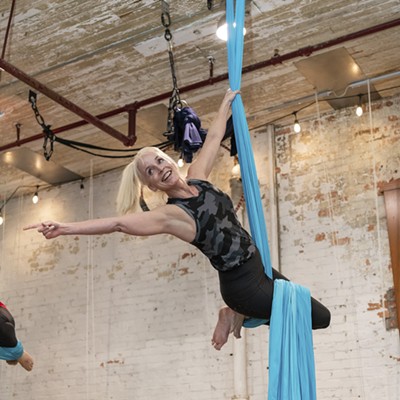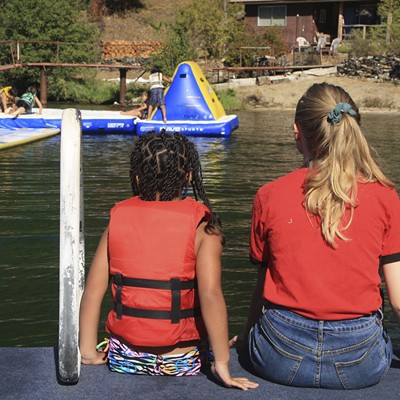Drowning can happen quietly and quickly. The splashing, screaming and struggling we may expect often does not happen. Because a child can drown in an instant, every child who is playing around or in the water should be watched constantly — drowning is the second-leading cause of unintentional injury or death for children in Washington. Every year, drowning accounts for an average of 24 deaths, 26 hospitalizations and about 110 visits to emergency rooms for kids 17 and younger, according to the state Department of Health.
Many drownings and near-drownings happen when adults assume that one of them is keeping an eye on the kids. Unfortunately, this assumption can lead to tragedy. The Spokane Regional Health District is urging area adults to institute a Designated Child Watcher system — a simple way to make sure that someone has the responsibility for the kids at all times. The Spokane Regional Health District has free Designated Child Watcher kits in Room 401 at the downtown location, 1101 W. College Avenue. Or you can make your own. Just buy a whistle and some string and laminate a small list of rescue tips to add to the whistle string. The tips should cover rescue breathing and calling for help.
Adults can then take turns watching the kids. Whoever’s wearing the whistle is on duty. The whistle reminds the wearer that it is their time to make sure the kids are safe. It also serves as an alert if the watcher spots trouble. This system is a good idea, even if you are at a beach with a lifeguard. At busy beaches it can be difficult for a lifeguard to watch every child at all times. Having a backup in the form of a Designated Child Watcher adds a second layer of protection for one of the biggest dangers young children face. Of course, if you are at a beach or pool with a lifeguard, always step aside and let them do their job if a water emergency arises.
As kids get older, there will be times that they go to a lake or river without adults. Unfortunately, this is one of the most likely occasions for a drowning to happen. A dare, peer pressure or showing off can lead to tragedy when a young person tries to swim across a river or to a dock or dives into shallow or dangerous water. Teens may not know about currents or the impact of cold water on a person’s stamina. So start young with swimming lessons and good safety habits. Then as kids get older, talk to them about being smart around water. Find out where teens plan to go, and discuss the ways they can stay safe. Let them know your expectations for their safety decisions.
Make sure that you familiarize yourself with the rules, as requirements for life vests and other safety precautions vary across state lines and in certain area lakes and rivers. You can find out more about the Washington rules at www.parks.wa.gov, and for Idaho visit www.parksandrecreation.idaho.gov.
Let’s keep all our kids safe around water this summer!
Julie Graham is the spokesperson for the Spokane Regional Health District.
















